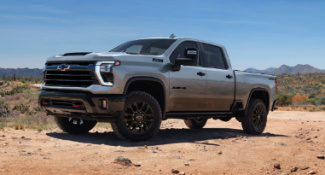A vehicle has two general types of parts – those that are important and those that are vital.
The vehicle's braking system falls under the classification of vital. Absent working brakes, accidents happen. Therefore, a car's brake pads are an essential part of your braking system and one of your car's crucial components that wear out periodically, due mainly to the friction they create when pressing against your brake rotors or discs to help your vehicle come to a stop or slow down.
Brake pads have an important job to do, so ensuring they're replaced when necessary is part of being a responsible vehicle owner.
When Do Brake Pads Wear Out?
There are signs to watch for when it comes to brake pad wear and tear so that you'll know when it's time for car maintenance. So recognizing these signs can help you determine when it's time to replace the brake pads. Brake pads can be made from metal, composite or ceramic, but they all have one thing in common; they lose a tiny bit of material every time you hit the brake pedal.
When disc brake pads wear too thin, they are not as effective at creating heat from friction, which decreases their capacity to stop your car as fast as you need to stop, and you may need more stopping distance when brake pads become worn thin.
Think of your vehicle much like you do your body. Every part of your body must be in working order for the other parts to work correctly. When one part begins to wear out, other problems can follow.
Pay attention to the warning signs that your brake pads are beginning to fail, which include:
A screeching, squeaking, or squealing noise: An intermittent screeching sound when you hit the brake pedal is a common indicator that your brake pads are starting to wear thin. Brake pads are engineered to make this sound. They're equipped with a small metal attachment on the backing plate that serves as a wear indicator.
If you notice a high-pitched screech coming from your vehicle when you reduce your speed, this may be a harbinger of a brake pad job soon. It's important to note that the screeching you might hear when your brakes get wet — such as after hitting a large puddle of water in the roadway — is not the same as a warning indicator that serves to indicate the need for new brake pads. As a general rule, if the screeching sound goes away after hitting the brakes a few times, it's just due to moisture on the pads and not an indicator that you need to change the pads out.Steering wheel vibrations: When you slow down, and you feel a slight vibration in your steering wheel, your pads are probably beginning to wear thin, which exposes your rotors to added heat. A brake service at a local repair shop should be done immediately.
Grinding noise: If you notice that your vehicle's screeching noises have been replaced by grinding noises when you apply the brakes, your brake pads are dangerously worn. This sound is a metallic grinding sound or may present as a rumbling type of growling sound. It results when your brake pads are making actual contact with the rotors, which can easily damage your braking system. Get to a service center as quickly as possible when you hear this noise.
Visual inspection showing brake pad is less than 1/4-inch thick: If a mechanic checks your brakes and there's less than ¼-inch of pad left, then it's time for new brake pads.Indicator light indicates a problem: In some vehicles, especially newer models, a warning light on your dashboard will light up to let you know that your brake pads have seen better days and it's time for a changeout. Know for sure if your car has this ability by checking out your vehicle owner's manual.
Is It Still Safe to Drive?
Although you can drive a vehicle with worn brake pads, it's not advisable. Once your pads are worn through, your vehicle is harder to stop. Moreover, your other braking components can become damaged by the lack of brake pads on your braking system, which can have a domino effect that makes things even worse by damaging your rotors and calipers— and much less safe for you.
Life Expectancy For Brake Pads
Most brake pads are rated to last from 30,000 and 35,000 miles, but there is no real way to know how long they will last you in particular. Several factors affect the wear and tear of your brakes, and because of this, the life expectancy of brake pads varies widely between drivers and between vehicles. Driving conditions, driving habits, and driving style also matter.
For instance, if you are a driver who spends a lot of time sitting in heavy stop-and-go driving, you use your brakes more often than you would if your commute was a straight shot on rural highways. Likewise, if you tend to "ride" your brakes when you drive, then your brake pads will naturally wear out more quickly. If you tow items frequently or haul a lot of stuff, then brake pad life is reduced. Inversely, if you are a conservative driver who takes a slow approach to stop, you can count on your brake pads lasting longer than if you are a driver who brakes and stops suddenly and hammers the brakes daily.
Where To Go For Brake Pads
If you're a moderately experienced gearhead, the chances are that you can easily change your brake pads at home. However, most folks don't have the skills nor the tools needed to DIY a brake job, so it's best to leave it to the pros who can change not only the brake pads but also the rotors or discs, inspect your brake caliper and brake linings, and replenish your vehicle's brake fluid. A service center mechanic can easily change your brakes and pads (or shoes, if you have drum brakes), so you know the job is done right the first time. The service department at your local dealership can also change your brakes and brake shoes.
How Much Do New Brake Pads Cost?
How much you'll pay for replacement brake pads depends on a few factors, including the type of vehicle you own, the type of brake pad, the material used to make the brake pad, and even the geographic location where you're getting your brakes serviced. Drivers can expect to pay around $150 per side for brake pad replacement. Still, that figure can be significantly more depending on the friction material your brakes are metal, ceramic, or composite. But using better brakes such as composite ones containing metal can reduce wear and be a better investment over time.
In addition, if you drive a high-performance vehicle with specialty brake pads, you will pay more. As a real-world example, to replace the rotors and brake pads on a Mercedes-AMG car, owners pay north of $15,000.
The Bottom Line
You have a lot riding on your brakes — literally. Your life, your family's lives, and the lives of others on the roadway depend on your ability to operate your vehicle safely. Brakes (and by association, brake pads) are an integral part of that capacity for safety. Staying on top of brake maintenance and changing out your brake pads when needed is an intelligent move that all drivers need to make.


